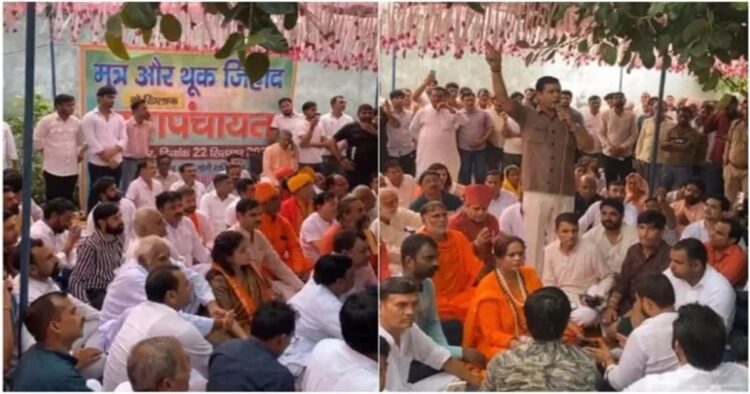In a strange mishappening in Ayodhya, Uttar Pradesh, a factory of the beverage company Coca-Cola has come in limelight for cutting off the Kalavas (sacred thread worn by Hindus on their wrists) of its employees. A video got viral on the social media wherein the security guard can be seen at the factory disrespectfully removing Kalavas off the wrists of Hindu workers upon their entry into the premises. It can be seen in the footage that the sacred threads of the employees were cut permanently first and then kept on a table. The incident has led to outrage on the social media for disrespecting Hindu sentiments by the American beverage company.
Initially, Coca-Cola refused to issue any statement but was forced later to give ‘clarification’ when the netizens asked. A security officer of Amrit Bottlers Private Limited (the bottle manufacturer of Coca-Cola), Sachchidanand Tiwari, said that he was stationed at Gate No.1 when the incident occurred on Saturday (21st September). He claimed that as per the factory rules, it is mandatory for workers not to wear bangles, rings, bracelets and wristwatches. Tiwari added, ‘These items can contaminate the beverages in the process area’.
Factory’s public relations officer Arjun Das gave a similar justification. He claimed, ‘The company will get defamed even if a single piece of thread falls into the drinking water for any reason and goes into any bottle’. Das further added that such a rule was applicable for workers in the procedure unit butthe security guard imposed it on all workers. on Saturday. He said that Kalava is a matter of respect in Sanatan Dharma and the accused security guard has been dismissed from service.
‘Coca-Cola did not give any instruction to remove the sacred thread forcibly off the wrists of the Hindu workers’, said Sachchidanand Tiwari. He said that the company really respects the religious beliefs of its employees and will not issue any such directions even in future. Sachchidanand Tiwari told the media, ‘I apologise if this incident has hurt anyone’s religious sentiments’.

















Comments